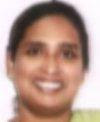Medication: A hard pill to swallow
While a study reveals that an expensive drug may not necessarily mean better treatment, doctors argue that their patients often think otherwise,
reports Preetu Nair
Expensive medication need not always mean better therapy nor for that matter do branded drugs equal to better efficacy. These are findings of a study conducted by doctors P Rataboli and Amit Dang of the Pharmacology department of the Goa Medical College and Hospital, Bambolim.
Titled, Selecting the cost effective antimicrobial: quandary of medical profession and published on the online medical site Journal of Clinical and Diagnostic Research, the study emphasizes that efforts should be made at all levels to identify antimicrobial therapies (drugs) that can lower healthcare costs while maintaining quality of care.
It notes that the escalation in prices of drugs together with hospitalization expenses are a major pinch on a patient's pocket. "While drug costs vary tremendously making it tough for doctors to make cost-effective therapy decisions, prescribing costly drugs can have a negative impact on a patient's compliance," the study notes.
It goes on to note that the probable differences in cost arise because most of the prescribed medicines are branded which adds to the cost of therapy and therefore, if possible, alternative "safe" drugs (generic preparations) with similar efficacy should be prescribed which could be less expensive, says the study.
"The cost of one tablet is not directly proportional to the cost of therapy as the dosage of different antimicrobials varies. Long-acting expensive drugs may ultimately end up being cheaper than their short-acting counterparts. Costly antimicrobials need not be the better ones," notes the study.
The study aimed at comparing the average retail price of different drugs available in oral and parenteral (intravenous or intramacular) dosage forms. It also calculated the cost of one-day therapy and aimed at selecting and justifying the use of certain antimicrobials as the most cost-effective in common microbial infections.
The idea behind the study was to make physicians realize the importance of "cost factor", as increased costs for better health outcomes can often have negative consequencespatients taking less than the recommended dose, saving medication for future use or taking a cheaper medicine of same chemical
name prescribed to another person for a similar reason.
For the study, the doctors procured the pricelist of antimicrobial brands and the average price of commonly available oral and parenteral brands of antimicrobials was calculated. The difference between oral and parenteral dosage costs was also observed.
"When oral and parenteral cost per day of a few antimicrobials where both forms are available are compared the parenteral preparations are generally found to be much more expensive than the oral forms," the study reveals.
It also shows that long-acting expensive antimicrobials may ultimately end up being cheaper than their short-acting counterparts. Take for instance the general treatment for respiratory tract infections. The cost of a once-a-day, daily dose of azithromycin is Rs 15.32 in contrast to the Rs 12.76 for erythromycin given four times a day. However, the total cost of azithromycin therapy (given for three days) is much less (Rs 45.94) than the therapy cost of erythromycin (given for five days) which comes to over Rs 63.
Similarly, in the treatment of hospital-related infections, especially among patients admitted to the intensive care unit, the cost per dose of teicoplanin (200 mg OD) is Rs 667 while the total cost of a one-day therapy with vancomycin is Rs 1330, the study notes.
Doctors however, say that most of the time it's patients themselves who prefer to opt for expensive drugs.
"People want doctors to prescribe expensive drugs as they feel that the effect will be better. I always give my patients a choice and ask them to select the drug, which only varies in cost. In majority of the cases, patients want us to prescribe the expensive drug," says Dr Shekhar Salkar, president of the Association of Surgeons of India, Goa chapter. He adds that the government needs to regulate the variation in prices of drugs.
On the other hand, Dr Govind Kamat, former president of the Association of Private Nursing Homes says, "Drugs have become expensive. Patients want fast recovery and we prescribe drugs on the basis of effectiveness and not on the basis of cost. We are always afraid of prescribing drugs from non-reputed companies and prefer prescribing drugs based on the company's reputation."
25 Jan 2009, The Times of India, Goa edition
Wednesday, March 11, 2009
Medication: A hard pill to swallow
Labels:Goa;Journalist;Journalism;India
Health;Hygiene;Goa;Medication;dosage;India;Journalist;Journalism
Subscribe to:
Post Comments (Atom)







No comments:
Post a Comment